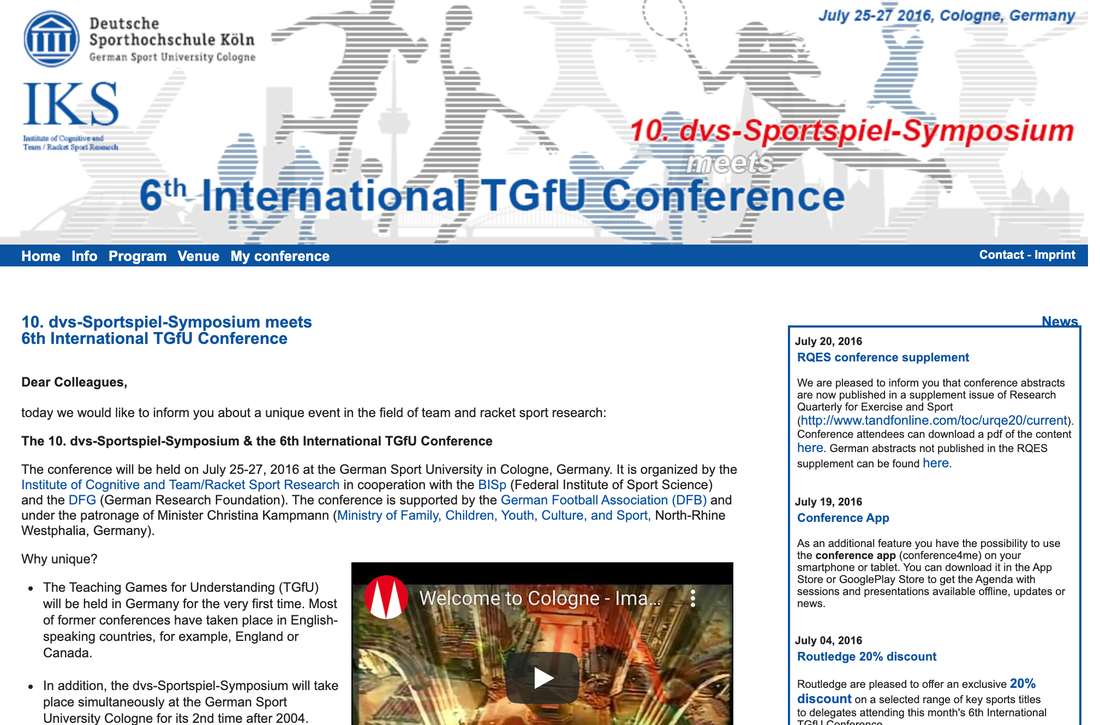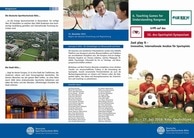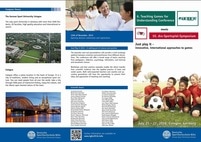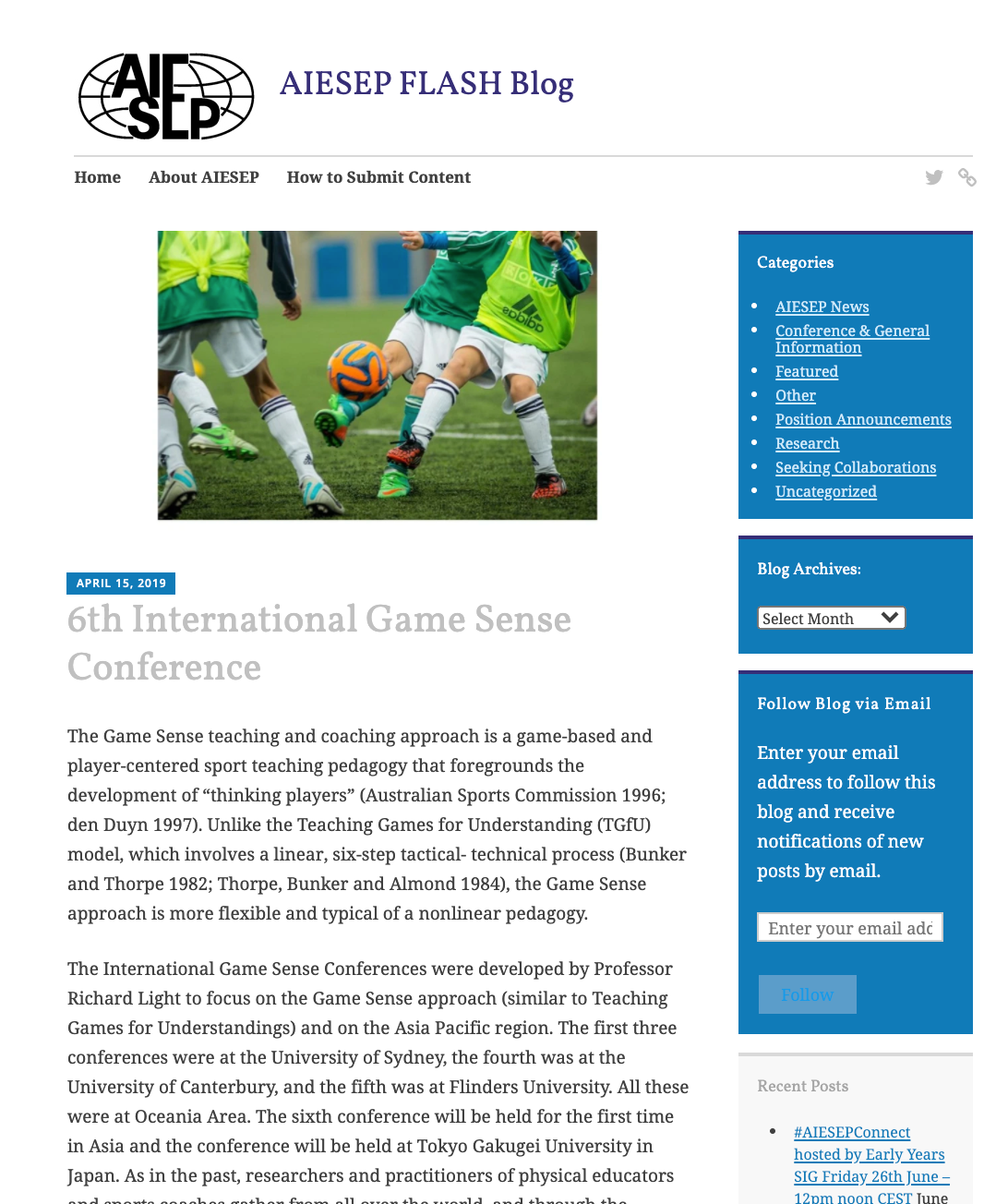6th International TGfU Conference
July 25-27 2016, Cologne, Germany
Photo gallery
RQES conference supplement
Conference abstracts are now published in a supplement issue of Research Quarterly for Exercise and Sport (http://www.tandfonline.com/toc/urqe20/current).
Conference attendees can download a pdf of the content here.
German abstracts not published in the RQES supplement can be found here.
Conference attendees can download a pdf of the content here.
German abstracts not published in the RQES supplement can be found here.
Conference Program
The detailed conference program is available online here.
Conference Themes
- Using pedagogical approaches to enhance game play for beginners and proficient players – encompasses approaches associated with TGfU and other related approaches (e.g. small-sided games) for promoting decision-making, anticipation, attention, and perception within games-based learning to develop creative, intelligent, and independent performers.
- Using technology to evaluate game play for beginners and proficient players – encompasses game play evaluation/assessment, talent identification, performance analysis in physical education and competitive sports.
- Complexity in learning through games – considers the broad movement to understanding game learning as dynamic, nonlinear and as part of forming a complex learning system.
- Teacher/coach development in games-based approaches – pre and in-service teachers learning to teach using TGfU related approaches as well as coaches, professional development of novice through to experienced practitioners This theme can also link to pedagogical strategies associated with TGfU such as facilitation, observation and analysis as well as questioning.
- Understanding games for learner and cultural development – encompasses physical/psychomotor, cognitive, affective/social, and cultural development via TGfU approaches which would include indigenous cultural perspectives.
- Games making/design for emergent learning – enabling young people to design, create or invent their own games. Also, practical sessions that show how purposeful game design creates the constraints that enable tactical understanding and skill development through adaptive learning and distributed cognition.
|
| ||||||||||||
Highlights
- Hans Flick: Special Guest. German Football Association (DFB)
- Prof. Dr. Joy Butler: Plenar Opening Lecture. University of British Columbia.
Keynotes:
- David Kirk: Is TGfU a Model only Test Pilots can Fly?: Teacher-coach Development in Game-centered Approaches
- Peter O'Donoghue: Using Technology to Evaluate Game Play for Beginners and Proficient Players that Encompasses Game-play Evaluation
- Henning Plessner: Teaching Games for Understanding and the Psychology of Intuition
Invited Speakers
|
Prof. Dr. Duarte Araújo
University of Lisbon Prof. Dr. Damian Farrow Victoria University Dr. Philip Furley German Sport University Cologne Dr. David Gutiérrez Universidad of Castilla-la Mancha Prof. Dr. Amy Ha Chinese University of Hong Kong |
Dr. Stephen Harvey
West Virginia University Prof. Dr. Stefan König University of Education Weingarten Prof. Dr. Karen Richardson Bridgewater State University Prof. Dr. Andrea Schmidt Osnabrück University |





